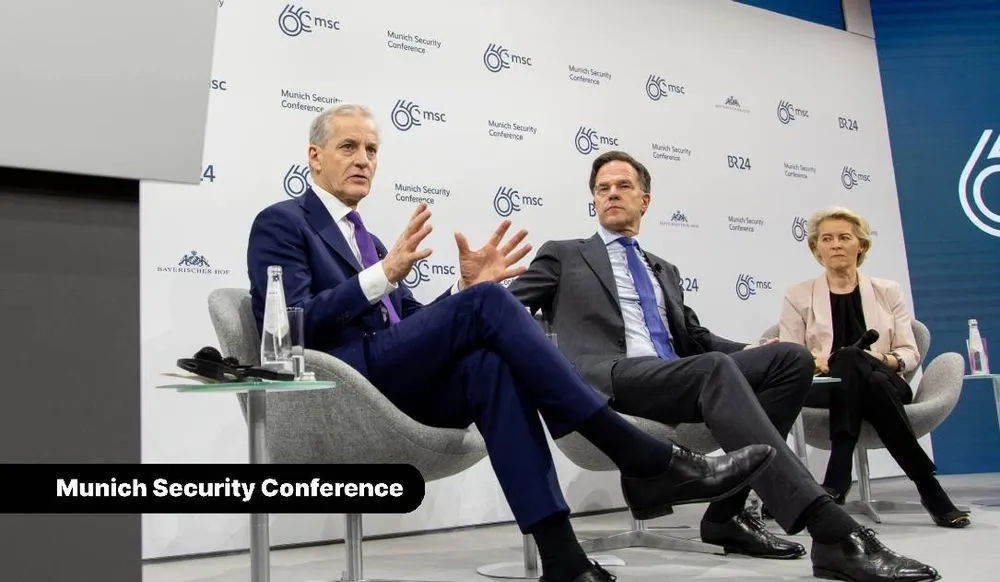Norway PM warns Russian conflict with Europe will ‘not necessarily start in the military field’
MUNICH, GERMANY — A conflict between Russia and other states in Europe beyond Ukraine would “not necessarily start in the military field,” warned Norway’s Prime Minister Jonas Gahr Støre at the Munich Security Conference on Saturday.
During a panel discussion about European defense, speaking alongside Ursula von der Leyen, the president of the European Commission, and the Dutch Prime Minister Mark Rutte, Støre cautioned that democracies were already “being tested on fake news, conspiracy theories, and cyberattacks.”
The conversation came in the wake of controversial comments by Donald Trump, who suggested his administration, if elected, would not protect NATO allies that failed to spend 2% of their GDP on defense, in contravention of the alliance’s founding treaty. He also provocatively remarked that he would even encourage Russia to attack such allies.
Rutte, the Dutch prime minister, said he did not believe that this would actually take place even if Trump formed another administration following the U.S. election later this year. Støre stressed that it was unwise to ignore the importance of NATO’s non-EU members, including the United States, United Kingdom and Turkey, who accounted for over 80% of the alliance’s military capability.
Støre had previously warned about Russia posing “a real and serious threat” to the country’s oil and gas industry following the recent arrests of seven Russians in Norway, which is a member of NATO but not the European Union, who were suspected of conducting reconnaissance targeting petroleum installations.
“Should there come a conflict — and I think Putin’s taste for war is limited, because NATO is strong — it will not necessarily start in the military field. It will start with diluting our democracies, diluting the truth,” the Norwegian prime minister told Munich.
Von der Leyen said that Vladimir Putin had “a broad approach to destroying democracies,” although she did not speak substantially on cyber or hybrid threats and did not mention the proposal by Charles Michel, the president of the European Council, of “a European cyber force … equipped with offensive capabilities.”
“The European Union has to step up its defense industrial base, without any question,” said Von der Leyen, who said the commission was set to publish a new defense industrial strategy in March, detailing plans to “spend more” on defense and “spend better” including through joint procurement plans.
READ MORE: Munich Cyber Security Conference 2024 Live Updates
Alexander Martin
is the UK Editor for Recorded Future News. He was previously a technology reporter for Sky News and a fellow at the European Cyber Conflict Research Initiative, now Virtual Routes. He can be reached securely using Signal on: AlexanderMartin.79



